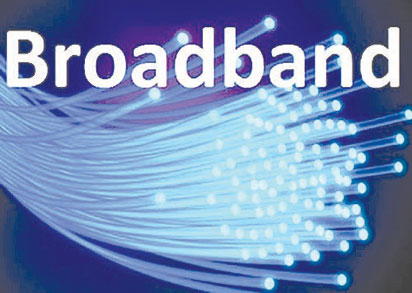…As country remains 21 percentage points short of goal
By Juliet Umeh
Despite a steady uptick in broadband subscriptions, millions of Nigerians remain digitally disconnected. The latest data from the Nigerian Communications Commission, NCC, shows broadband penetration climbed to 48.81 percent in May 2025, up slightly from 48.15 percent in April, a marginal gain that underscores a wider challenge.
With just months left to meet the 70 percent broadband penetration target set in the National Broadband Plan, NBP, 2020–2025, Nigeria still lags more than 21 percentage points behind.
Slow climb, fast deadline
From 45.61 percent in January to 48.81percent in May, Nigeria’s broadband growth has been sluggish in 2025. This is only a fraction of what’s needed to meet the target. Since the NBP’s launch in 2020, when penetration stood at 39.85 percent, Nigeria has added just 8.96 percentage points in over five years.
Even with 105.8 million broadband subscriptions and data consumption crossing 1.04 million terabytes, experts say these numbers mask a troubling reality: millions, especially in rural and underserved areas, remain offline.
Why the 70% may be an illusion
The broadband plan was designed to bridge Nigeria’s yawning digital divide and boost socioeconomic development. But progress has been hampered not by lack of demand, but by deep-seated structural challenges, especially at the state level.
Key among these challenges is the high cost of Right of Way, RoW, which telecom operators must pay to lay fibre-optic cables along roads and public infrastructure. While a few forward-thinking states have waived these charges, many still impose exorbitant fees that discourage infrastructure expansion.
NCC blames states for slowed progress
Executive Vice Chairman of the NCC, Dr. Aminu Maida, recently pointed fingers at state governments, saying most broadband rollout bottlenecks lie within their control.
Maida said: “Major obstacles to telecom infrastructure development include RoW issues, multiple taxation, and infrastructure resilience.
“To meet our broadband targets, state governments must lower regulatory hurdles and foster investment-friendly environments.”
ATCON raises alarm over telecom sector hurdles
The Association of Telecommunications Companies of Nigeria, ATCON, echoed similar concerns during its 31st anniversary celebration in Lagos recently.
ATCON President, Mr. Tony Emoekpere, warned that unless pressing issues like multiple taxation, RoW delays, and vandalism are addressed, the broadband vision will remain out of reach.
Emoekpere said: “The telecom sector is being weighed down by overlapping taxes from federal, state, and local authorities, which creates a hostile business environment.”
He further explained that cumbersome Right of Way, RoW, approvals continues to stall broadband infrastructure rollout across the country. In addition, vandalism of fibre cables and base stations results in costly repairs and frequent service disruptions, while the absence of harmonized policies across government levels discourages long-term investments in the sector.
To address these challenges, ATCON proposed the implementation of unified tax policies to eliminate redundant levies and foster a more conducive investment climate. The association also recommended streamlining and reducing the cost of RoW processes to accelerate fibre deployment, as well as enhancing security measures to protect telecom infrastructure, especially in rural and high-risk areas.
Emoekpere stressed: “These challenges require immediate, collective action. Without that, the goal of transforming Nigeria into a digital economy will remain a dream.”
He also noted that next-generation technologies like 5G and the Internet of Things, IoT, hold immense promise, but only if foundational infrastructure gaps are addressed first.
“We’re at a digital crossroads. Fixing these systemic issues is the only way to unlock Nigeria’s full potential in telecom and position us as a true digital leader in Africa.”
As the 2025 deadline looms, the numbers may continue to rise incrementally, but unless structural roadblocks are removed, millions of Nigerians will remain excluded from the digital economy. For broadband to become a real development tool, not just a metric, Nigeria must go beyond chasing percentages and start fixing policies that matter.
The post Why 70% broadband penetration might still leave millions offline in Nigeria appeared first on Vanguard News.

